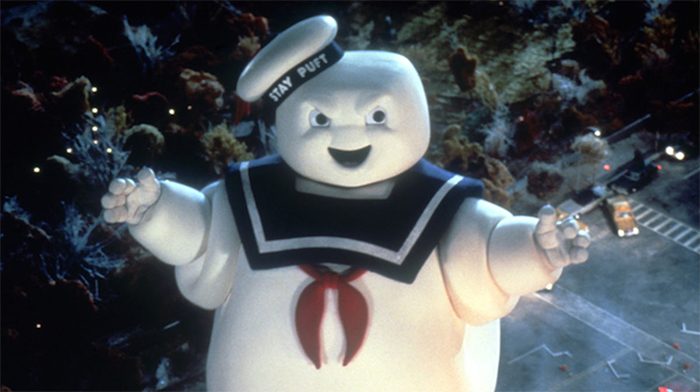
So, you don’t know me. Don’t worry. It’s not your fault. I’ve only been part of /Film for about two months, and as Sr. Features Editor, most of my work has been behind the scenes. My team and I have been putting together some fun stuff for all of you, but you haven’t seen any of it yet. Soon, I hope!
But I am thrilled to be here, and I’m looking forward to getting to know the /Film community a whole lot better. As such, consider this list a letter of introduction. No, I don’t know what it says about me that I like so many dark comedies, or films about criminals, or movies where elaborate plans unravel in spectacular, terrible fashion. Yes, if I made this list in a year, or next week, or tomorrow, it would probably look a little different.
However, for better or worse, I genuinely believe that anyone who watches all of these movies will have a pretty good sense of my taste, my politics, my history, and — most notably — my sense of humor.
In other words? Hi! It’s really nice to meet you.
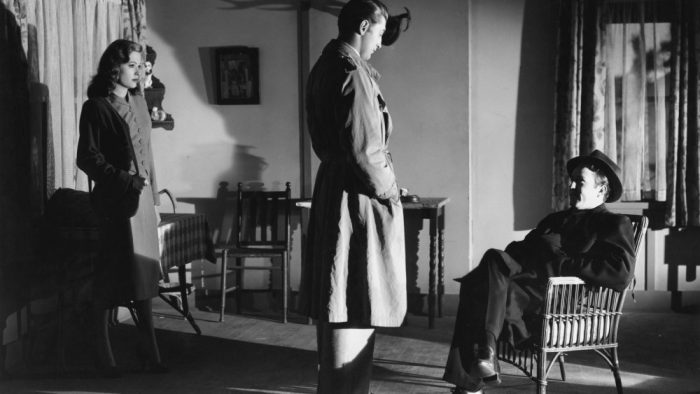
15. Out of the Past (1947)
I read a lot of hard-boiled crime fiction, so naturally film noir is a healthy part of my movie-watching diet. To me, Out of the Past epitomizes everything that makes the genre so much fun.
Yeah, it’s a movie full of clichés, but when everything is done this well, you can see how they became clichés in the first place. Robert Mitchum’s Jeff Bailey, a former private detective who gets pulled back into action when an old gangster comes calling, is the quintessential noir protagonist: easily manipulated, borderline crooked, and constantly out-of-his-depth. No femme has ever fataled harder than Jane Greer does here. Young Kirk Douglas makes a great villain, and the film’s twists and turns are particularly nasty.
Modern filmmakers like to deconstruct noir, and interrogate it, and neo-ize it, and so on. For my money, though, it’s a genre that still works best when you play it fairly straight. Out of the Past is the proof.
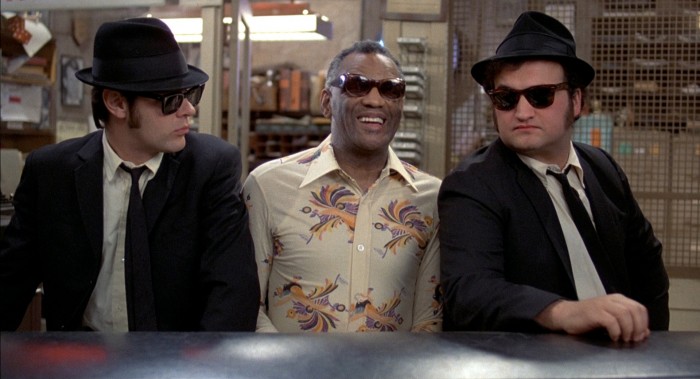
14. The Blues Brothers (1980)
Yeah, okay, good jokes, very quotable, Illinois Nazis aren’t as funny as they used to be, there are lots of car crashes, whatever. I don’t love The Blues Brothers for the movie. I love it for the music. When I was 12, I had some CDs, but I still wasn’t sure what I liked. Then I watched The Blues Brothers. It blew me away; I’d never heard anything like it.
I wanted more blues immediately, and you know what? I already had a map. The Blues Brothers features songs by Ray Charles, Aretha Franklin, Cab Calloway, and John Lee Hooker. They cover Wilson Pickett, Taj Mahal, and Robert Johnson. There are recordings by Sam & Dave and Elmore James on the soundtrack. Connect the dots, and everything you need to know about the blues is right there.
Eventually, the blues led me to classic rock — my mind was blown when I realized my dad’s old records were full of blues songs I already know — but when I really need a pick-me-up, I still turn to Muddy Waters, Junior Wells, B. B. King, Otis Redding, and the rest. For that, I have Jake and Elwood to thank.
13. Miller’s Crossing (1990)
This was the hardest spot on this list to fill: Should this be Miller’s Crossing or Goodfellas? I love mob stories. At their best, they combine all the underhanded power plays that make politics so interesting with the melodrama of a Shakespearean tragedy — and make no mistake about it, Goodfellas and Miller’s Crossing are two of the best.
Ultimately, Miller’s Crossing wins out. In part, I’m a little skeptical of Goodfellas in the same way that I distrust a talented magician. It was the first Scorsese movie I ever saw. Was I just dazzled by the tricks — the long takes, the big performances, the incredible soundtrack?
But while Miller’s Crossing is more modest, it’s not any less stylish, and I think it tells a more interesting story. My girlfriend and I quote this movie more than any other — “You know me a little” is practically our catchphrase. Still, on any given day, Henry Hill and his crew could occupy this turf.
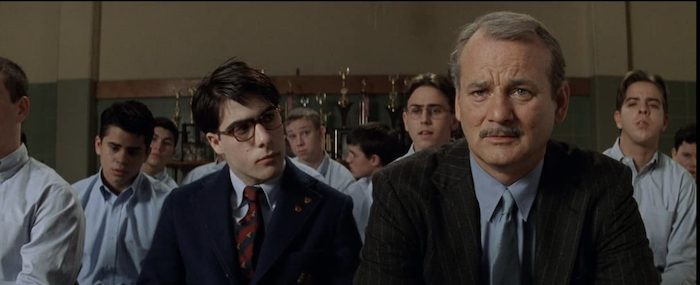
12. Rushmore (1998)
Rushmore came out during my sophomore year of high school, when I was an overachiever at a private high school where I didn’t feel like I belonged (my mom was on the faculty), and constantly pressured myself to prove my worth. I was deeply cynical, grappling with social anxiety disorder, and spent most weekends writing screenplays in my journal instead of hanging out with friends.
So, yeah, maybe it’s not a surprise that I sympathize with Max Fischer, a quirky, moody loner who defines himself by his accomplishments, who doesn’t have many friends, and who spends his spare time writing elaborate plays. Watching Max push through it, surround himself with people who legitimately care about him, and find a place that he could call his own gave me hope. To be honest, despite how much I think I’ve grown and changed, it still does.
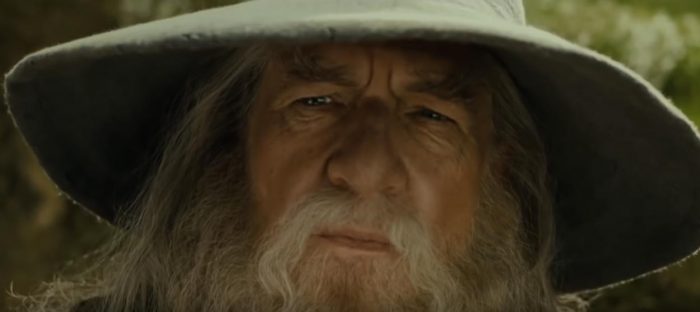
11. The Lord of the Rings: The Fellowship of the Ring (2001)
I’ll never be able to judge The Fellowship of the Ring on its own merits. The Lord of the Rings is my favorite book. I’ve read it at least a dozen times. I have a whole bookshelf dedicated to tie-in stuff like The Silmarillion, The History of Middle-earth series, a collection of Tolkien’s letters, and that sort of thing. Yeah, I’m one of those people.
As such, it’s impossible for me to watch Peter Jackson’s movies without thinking about what they got wrong — and, more importantly, how much they got right. Gandalf, Boromir, Gollum, and Sam Gamgee — my all-time favorite fictional character — are perfectly cast. Everyone else is pretty close. Almost every location feels like it was plucked straight out of Tolkien’s imagination, and all of the important plot beats are there.
The Fellowship of the Ring is the best of the series. It takes fewer liberties with the books — I think Jackson is stronger when he’s sticking to the source material (see, for example, The Hobbit) — but, more importantly, it was the first one. I’ve never been so excited and so terrified to see a movie (remember, this was made by the guy who did Meet the Feebles), but Fellowship put all my fears to rest. This was still The Lord of the Rings, even if some of the specifics are different.
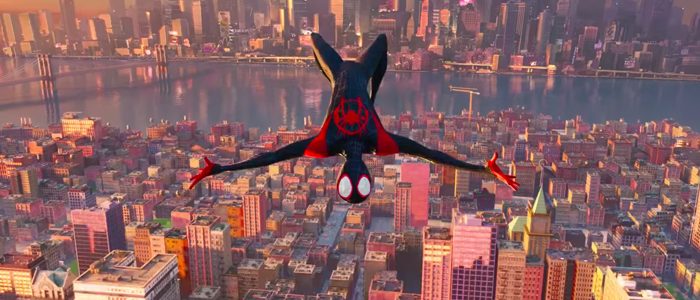
10. Spider-Man: Into the Spider-Verse (2018)
We don’t actually get that many comic book movies. Superhero movies, yes. Films based on graphic novels, sure. But very few films capture the bombast, imagination, and flat-out weirdness of mainstream superhero comics. If you haven’t read a comic lately, change that. Those things are wild.
That boundless, unrestrained energy rarely makes it to the screen. Spider-Man: Into the Spider-Verse gets it, though. This movie is an origin story, a superhero crossover, and a eulogy for Marvel’s most popular hero all wrapped in one. It throws far out concepts like a multiverse, time travel, and a spider-powered pig at the audience, and expects them to somehow keep up. To me, that’s comic books.
And yet, Into the Spider-Verse never loses sight of the human story at its core. Comics are very good at going very big and very small at the same time; Into the Spider-Verse does that, too. Also? It’s flat-out gorgeous. I’m a sucker for animation, and I’ve never seen anything like Spider-Man: Into the Spider-Verse. It is, quite simply, my favorite movie to look at.
9. Star Wars (1977)
Here’s the problem with every Star Wars movie after the first one: they all make the universe smaller. The Empire Strikes Back’s big reveal is one of the best plot twists in movie history, but it transformed a pulpy adventure series into a saga where everyone is related and all the major characters seem to know each other.
By contrast, Episode IV builds its magic out of empty spaces. It starts in the middle of the story, with only a brief text crawl to get you oriented. It tosses evocative terms like “the Clone Wars” and “the Kessel Run” at the audience, but doesn’t take the time to explain what they mean. Who are those weird aliens in the bar? What’s really lurking behind Darth Vader’s ominous mask?
It’s almost like George Lucas is inviting you to be the co-creator of this universe. Your mind can’t help but fill in the gaps. The end result is a world that feels both infinite and highly personal. Luke, Han, and Leia’s adventure is just the beginning; the best Star Wars adventures are the ones that take place in your own imagination. Still, Lucas’ film is a pretty great jumping off point.
8. The Iron Giant (1999)
It’s weird to see the Iron Giant show up in nostalgia-heavy movies like Ready Player One and Space Jam, because when it came out I remember dragging everyone I knew to empty screenings. The Iron Giant came out the same year as The Matrix, Star Wars: Episode I (the first new Star Wars movie in 16 years!), Fight Club, Magnolia, Eyes Wide Shut, and so many more. And yet, I’m pretty sure I saw The Iron Giant more times in theaters than all of those films combined.
It’s not a complicated film. The Iron Giant is basically a boy-and-his-dog story, except the dog is a giant alien superweapon, and I’m always a sucker for those. But there’s more going on here, too. I think the Cold War backdrop is a canny choice, and gives the movie real stakes. The adults’ paranoia is justified. They’re not normal kids’ movie parents, getting in the way to cause problems. They’re scared, and justifiably so.
The Iron Giant is also the best Superman story ever told, and remains the only film that can reliably make me cry. I am so glad that it’s finally regarded as the classic it was always meant to be.
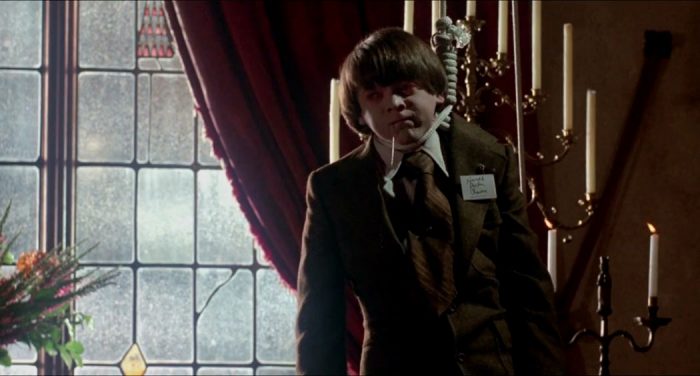
7. Harold and Maude (1971)
There’s a scene in Harold and Maude that made me laugh harder than anything else I’ve ever seen in a movie. It comes about 20 minutes in, when Harold’s mother is talking with one of his prospective dates. Harold appears outside, waving through the window behind him. Then, he gets to work, covering himself with a sheet and dousing himself with gasoline. As the young poli-sci major makes it clear that she has nothing interesting to say, Harold sets himself on fire.
I know, hilarious, right? But it really is. Of course, by that point, the audience knows that the whole thing is a trick, so we’re not shocked when Harold walks into the room moments later, unscathed despite the blaze in the garden.
That’s the kind of movie Harold and Maude is: a trick. It hooks you with dark humor, but ends up having more heart than any other movie I’ve ever seen. It’s all about death, but ends up being about finding joy in life. It’s the most unconventional love story you’ll ever see, but one that feels oddly universal. Also? The soundtrack rocks.
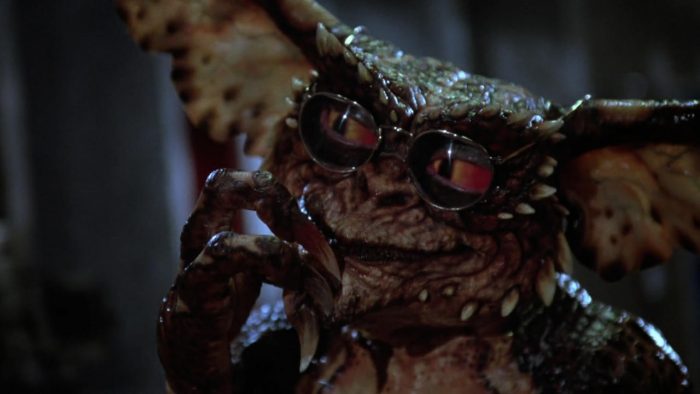
6. Gremlins 2: The New Batch (1990)
When Warner Bros. gave Joe Dante complete creative control on his Gremlins follow-up, I doubt they expected him to turn around and make a 106-minute middle finger to sequels, corporate Hollywood, and big business in general. But that’s exactly what he did, and the result is one of the weirdest movies ever created.
I can trace most of my sense of humor back to Gremlins 2, which was the first experience I ever had with both satire and meta-fiction. Watching the gremlins attack Leonard Maltin while he reviewed the first movie, or later, break out of the VHS tape and take over my TV, blew my 8-year-old mind.
Oddly, I can see a lot of my modern politics reflected here, too. Daniel Clamp, John Glover’s egotistical and out of touch uber-capitalist, is an obvious Donald Trump parody (a deleted scene even teases Clamp’s eventual run for president), and he feels more relevant than ever in the age of Elon Musk and Jeff Bezos. Gremlins 2 isn’t subtle, but its message is weirdly timely: Despite their promises, corporations and big tech aren’t going to save us. If we want to survive, we’re going to fight for ourselves.
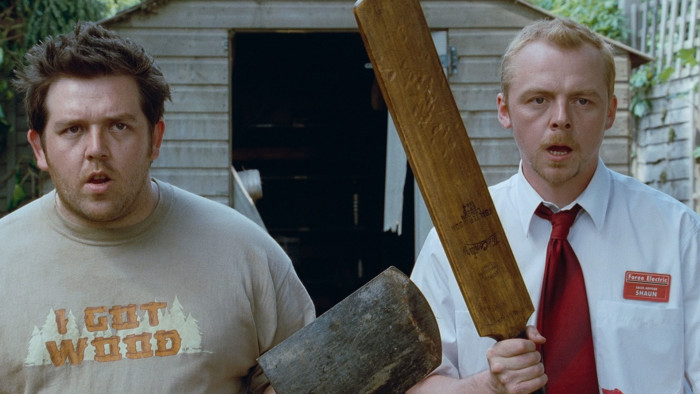
5. Shaun of the Dead (2004)
If you want me to watch your movie, just describe it as a horror-comedy. I love monsters, I love blood and guts, and I love comedy. Put all three of those things together, and I’ll come running.
But unlike other favorites — Evil Dead 2, Dead Alive, Cabin in the Woods, Bubba Ho-Tep, Happy Death Day, etc. — Shaun of the Dead is more than the sum of its grisly, dismembered parts. From a writing perspective, it’s the most carefully constructed movie I’ve ever witnessed. Every single thing in the first half of the film pays off in the second, usually for big laughs or legitimate scares. That’s another thing: Shaun of the Dead balances its comedy and horror perfectly. It’s very fun, but when the action gets going, it plays for keeps.
Most importantly, however, Edgar Wright and Simon Pegg understand that both the best comedy and also the best horror comes from well-developed characters. Shaun of the Dead is the rare horror-comedy that makes you legitimately, honestly care, and that puts it a step above all the rest.
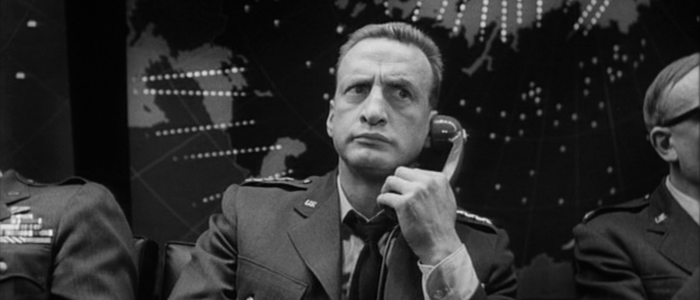
4. Dr. Strangelove or: How I Learned to Stop Worrying and Love the Bomb (1964)
My parents rented Dr. Strangelove for me thinking it was a Bond movie. What I got was so much better.
Ironically, it was the work by production designer Ken Adams, who did all of the early Bond films, that first grabbed my interest (seriously, that war room set is just a villain’s lair in black and white). Once the story got going, though, I was hooked. Like I’ve said, I love watching complex plans and competing schemes backfire and become disasters — again, I think that’s one reason why I read a lot of crime fiction — and it’s hard to imagine anything more disastrous than Rube Goldberg-esque misfortune of Dr. Strangelove’s winding plot.
Dr. Strangelove sparked a lifelong interest in both politics and history, but really? It’s here because I think it’s the funniest movie ever made. Period. Peter Sellers usually gets most of the credit for the film, and his phone call with the drunk Soviet Premiere is a highlight, but George C. Scott is the real MVP. No matter what’s happening, he’s always doing something funny. If I ever write a line half as good as “You can’t fight in here, this is the war room,” I will die happy.
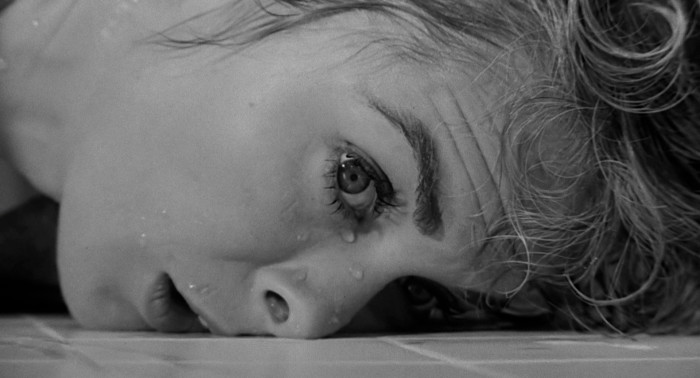
3. Psycho (1960)
I think everyone who loves movies has a film like this one. I was a freshman in high school, and my sister and my mom were out of town on a school trip. My dad came home and said he was going to show me the scariest movie he’d ever seen. I looked at the box. It was made in 1960. It was black and white. How scary could it be?
I still don’t think that Psycho is very scary. I do think that it is thrilling and surprising, and I loved every second of it. The day after I saw it, I went to the video store, looking for any other Hitchcock movies I could get. Before long, I was following actors like Jimmy Stewart, Cary Grant, and Ingrid Bergman to other people’s films, which opened up the work of even more directors. Repeat, repeat, repeat.
It no longer mattered if something didn’t have color, was made before I was born, or was in a genre I didn’t think I liked. I wanted to watch it all. This was in late May; over the following summer, I watched two to three movies every day — sometimes more, if I wasn’t working. I’d always liked movies (or, rather, certain movies), but by the time I headed back to school I loved them — all of them — because Psycho had opened my eyes.
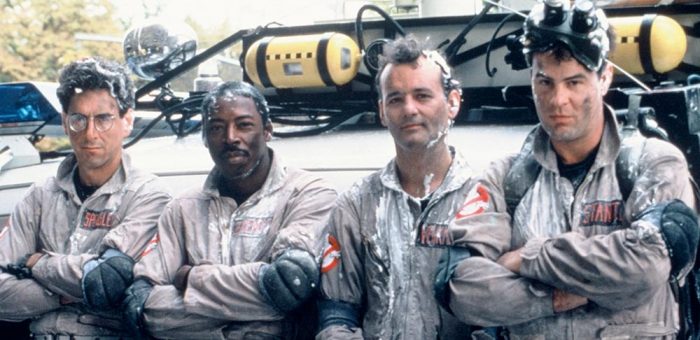
2. Ghostbusters (1984)
You know how people of a certain age talk about seeing Star Wars, and how it blew their minds and made them love movies in general? For me, that was Ghostbusters. I saw it when I was 4 years old and went wild for it. I didn’t realize it at the time, but the years I spent after that listening to interviews, reading its screenplay, collecting behind-the-scenes trivia, buying toys, and so on taught me a lot about how movies are made (well, okay, the toys were just for fun).
When people ask me what my favorite movie is, Ghostbusters is the default answer. It’s been a part of my life for so long that, occasionally, I’m sick of it. Ghostbusters is just a high-tech slobs vs. snobs comedy; it doesn’t justify the toxic outrage the 2016 reboot generated, nor the odd, reverential tone of the Ghostbusters: Afterlife trailers.
But, still, this is a movie chock full of things I love. I’m always drawn to stories about people who treat the fantastic or the bizarre like it’s mundane. I adore clunky, barely working sci-fi tech. Mixing horror and comedy is the fastest way to my heart. It’s no wonder that I love Ghostbusters — or do I love those things because I love Ghostbusters? At this point, it’s impossible for me to tell.
1. Fargo (1996)
There’s no such thing as a perfect movie — but if there is, it’s Fargo. It’s the only movie I can think of where I wouldn’t change a single thing.
If you’ve read this list, that shouldn’t come as a surprise. A labyrinthian scheme that falls apart as soon as emotions get involved? Check. Ordinary people caught in bizarre and outlandish situations? Check. Pitch black humor? Memorable, deliberate gore? Lots of crime? A hero whose innate goodness shines through, despite all of the darkness around her? Check, check, and … well, you get the idea.
The Coen brothers‘ style can often come across cold and cynical, but Marge Gunderson gives Fargo‘s frigid landscapes a warm, beating heart, and I think that makes all the difference. It’s a lean, brutally efficient thriller that feels like it takes place in a universe just to the left of ours, featuring career-best work from both Roger Deakins and Carter Burwell. The Coen brothers’ version of Minnesota is not a place I’d like to live, but boy, I’ll never get tired of visiting it.
The post Christopher Gates’ Favorite Movies of All Time appeared first on /Film.
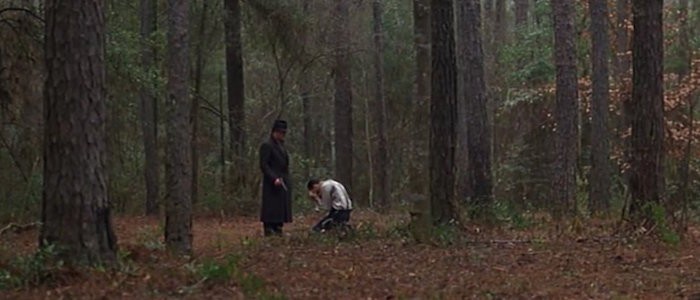
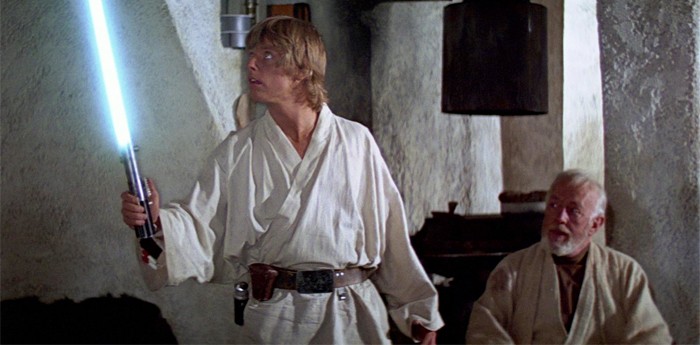
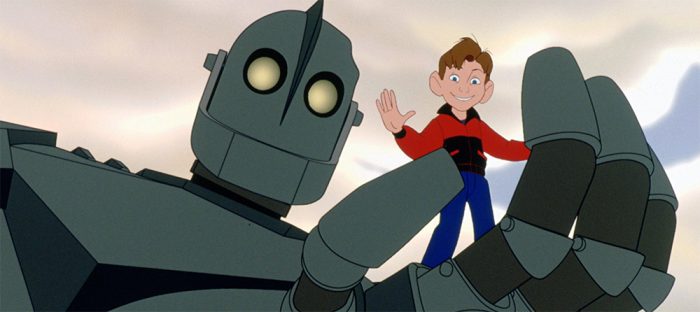
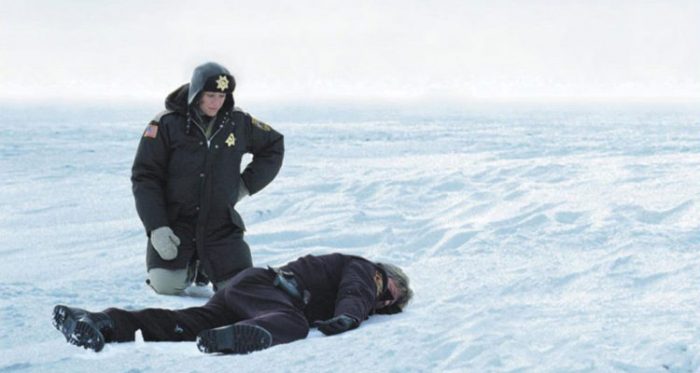
0 Comments